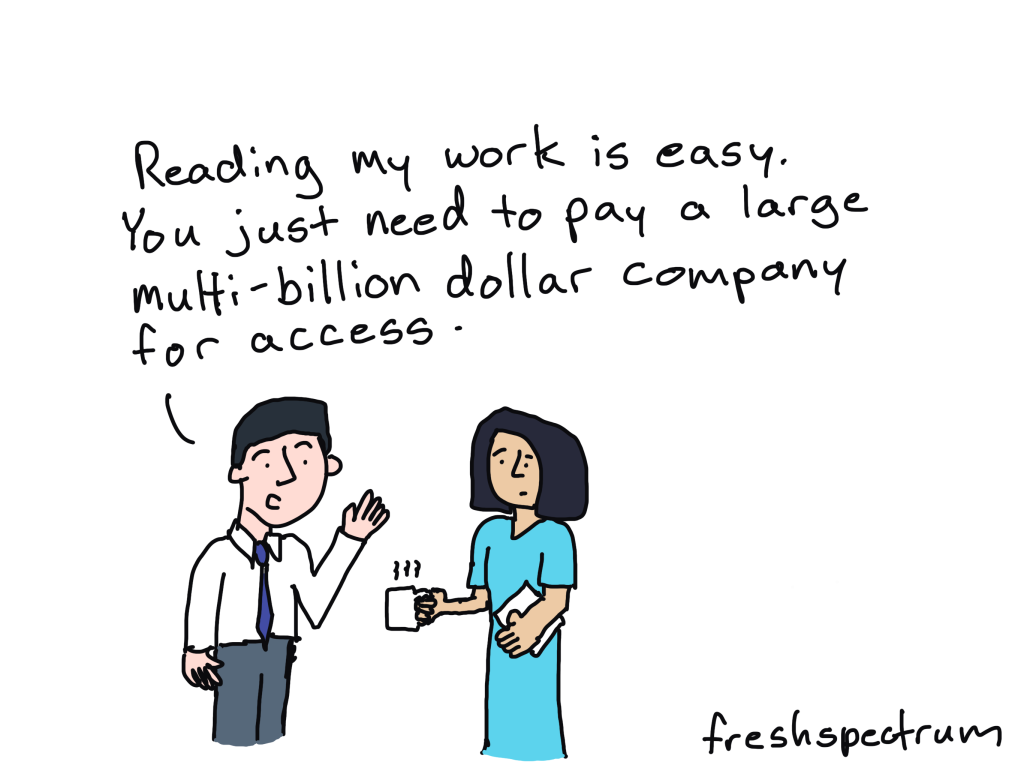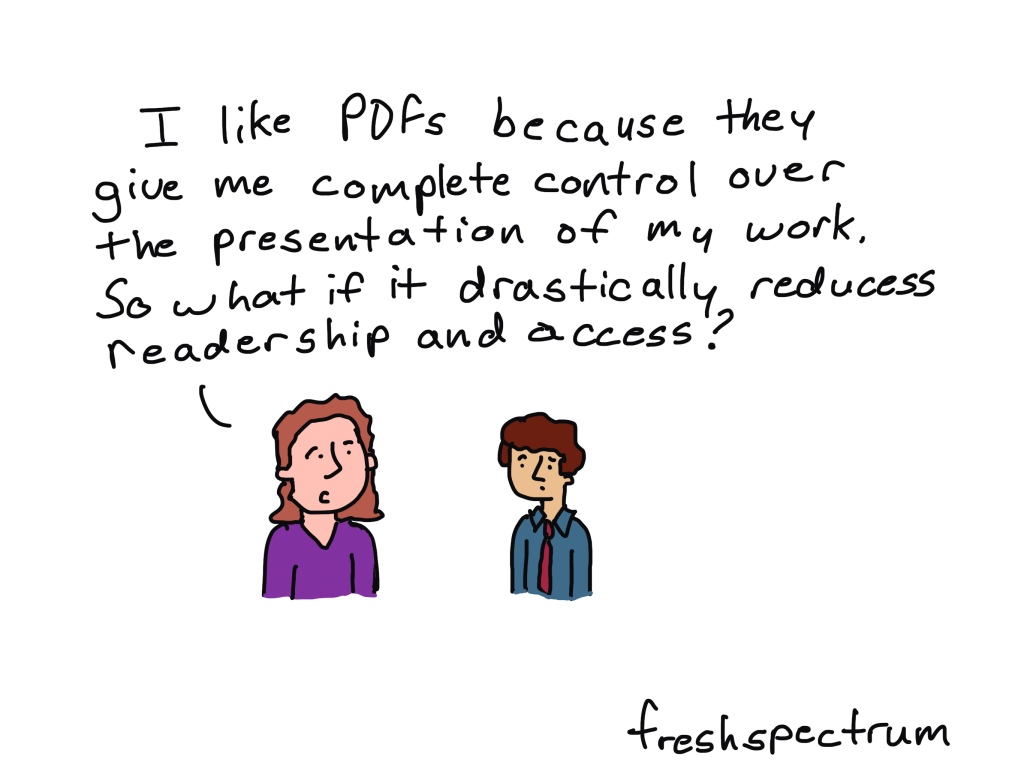This is an Eval Central archive copy, find the original at freshspectrum.com.
Do you ever think about the amount of work that goes into a conference presentation?
How many hours do people spend planning their conference proposal, meeting with collaborators, putting together their presentation (or poster), traveling to the event, and then eventually presenting?
And then they complain that having a blog would take too much of their time.
This has bugged me for years. In fact, it was the topic of my first ever American Evaluation Association conference presentation. It was an ignite session that just so happened to be recorded and posted to YouTube.
Academic conferences and journals restrict access (so do PDFs)
An academic conference can be exclusive. It often requires physical participation, registration fees, and insight into when and where it will take place.
A journal article can be exclusive. It often requires a hefty subscription, enrollment in a University, or membership in an association. You also have to have the patience/ability to read academic-speak that likely has little to no illustrations.
A PDF report or guide is often exclusive. It does not show up easily in search engines or on social media, does not change to meet the needs of mobile phones, cannot be quickly auto-translated by a tool like Google Translate, and is usually written in the same academic-speak found in journal articles.

Increase Access through Adaptation
I have learned a lot over the last 12 years since I delivered that presentation.
One of the things that I’ve learned is that trying to change the way academically trained researchers and evaluators write and share their work is not really a good idea. It’s not a lost cause, just really inefficient.
The better way to increase access faster is to just adapt their work. For instance, you can…
- take a PDF and adapt it into an HTML-based report.
- take a long wordy report and adapt it into a string of infographics.
- take a report written at a post-graduate reading level and adapt it into a report that doesn’t require more than a lower secondary education level.
- turn big tables or complicated charts into nice, easy-to-follow charts.
- turn qualitative interview transcripts into a story collection.
There is no one right way to share or ensure access. But the more we do to adapt, the more accessible our work becomes. And there is so much more value in adaptation than there is in revision.

If you want help. I can help.
This is my job.
- I can turn your pdf report into a html report.
- I can turn your long reports into a string of infographics.
- I can help you create illustrated versions of your resources for more appropriate reading levels.
All you have to do to get started, is grab a slot on my calendar.